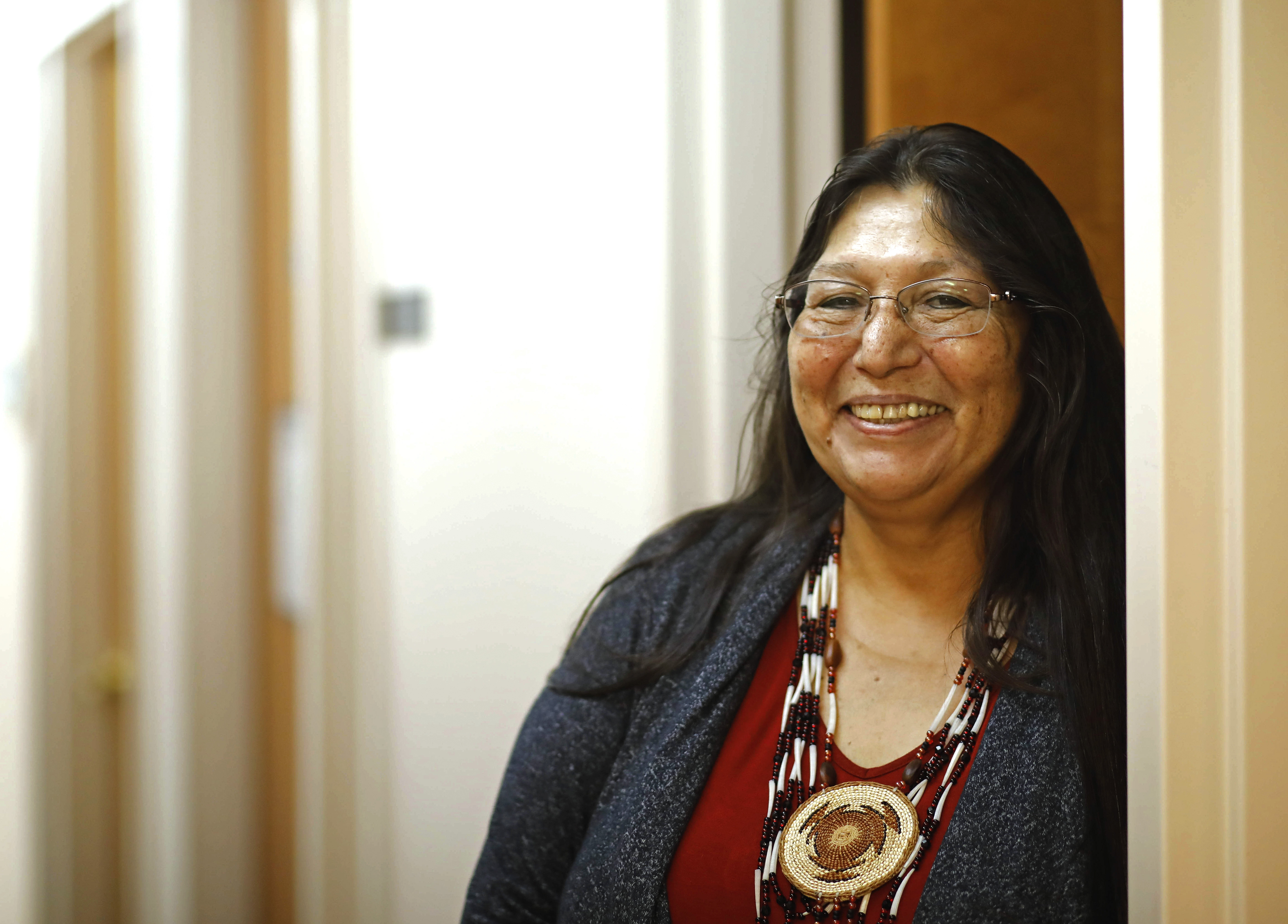Health & Education
Program aims to help addicted Tribal members after their release from prison

For more information, call 503-879-2026, e-mail elaine.robertson@grandronde.org or send an inquiry to yeʔlan tilixam haws, 9615 Grand Ronde Road, Grand Ronde, OR, 97347
By Danielle Frost
Smoke Signals staff writer
For almost 30 years, Tribal member Elaine Robertson has been helping Native Americans who are in prison.
She has volunteered in California and Oregon correctional facilities, providing cultural activities and ceremonies, as well as being an advocate or simply someone to listen.
“I know that everyone has value and worth,” Robertson says. “They can move forward with life after prison. Sometimes, you just need someone to help you. A lot of people coming out of the prison system lack self-confidence.”
Robertson is the Confederated Tribes of Grand Ronde’s new Meth & Opioid coordinator, a grant-funded position through the U.S. Department of Justice. She is heading up a new program called yeʔlan tilixam haws, which means “helper person office” in Chinuk Wawa.
Robertson earned two associate degrees from Native American D-Q University in Davis, Calif., and holds a bachelor’s and master’s in environmental science from Oregon State University in Corvallis.
She is the granddaughter of Esther LaBonte, and the daughter of Lester LaBonte and Nancy Ridlon. She is married to John Robertson and they have four grown children and one grandchild.
Previously, she worked for the Tribe as a tourism coordinator and in the Tribal mentorship program.
“At the Tribe we have drug and alcohol services, counselors and support groups,” she says. “But people are still falling through the cracks. I am hoping to get to these people and help them be successful.”
Robertson’s desire to help Tribal members struggling with drug and alcohol addictions is deeply personal. One of her close family members has struggled with these issues.
“I feel like I have been doing (this job) for a long time,” she says. “So when I saw it was available at the Tribe, I thought it would be the perfect fit.”
After her years of volunteering in Oregon prisons and with inmates after they are released, Robertson has gotten to know parole and probation officers in Polk County. She says she hopes to utilize these connections to help Tribal members who are re-entering society, sometimes after an extended period of time. However, the paroled person needs to sign a release stating that it is OK for their probation officer to contact Robertson.
“I want to work with the counselors and be there every step of the way,” she says. “I can help connect them with services to be successful. We want to get the word out that this help is available to our Tribal members.”
One of the big roadblocks people face after being released from prison is finding safe and suitable housing. For example, those with felony convictions for drug sales or manufacturing are often barred from rental housing.
“I will try to figure out what resources people do have and it will mean a lot of outreach and collaboration so I can send our Tribal members out to where they can succeed,” Robertson says.
The new program is a response to needs expressed at Tribal community meetings and surveys over multiple years, which indicate drug and alcohol abuse remain among the highest concerns.
According to information provided by Robertson’s office, both marijuana and poppy crops have been found growing on the Reservation. Additionally, the Grand Ronde Housing Department spends $109,400 in abatement for methamphetamines per unit (10 of 21 units in 2017 required abatement).
According to information provided to the Department of Justice for the program grant, Grand Ronde represents less than 3 percent of Polk County’s population, but methamphetamine crimes represent four times the rate of other areas in Polk County. Heroin cases represent more than 10 times the average rate of Polk County. For driving under the influence of intoxicant arrests, Grand Ronde experiences four times the rate of Polk County.
In response, the Tribe applied for and received a grant from the U.S. Department of Justice COPS Office to fund Robertson’s position for three years.
Grand Ronde Tribal Police Chief Jake McKnight says he has been a “huge advocate” of the new program. It is his estimate that more than 50 percent of the crimes committed in the community “have some sort of drug nexus.”
“I believe this position will help with recidivism because the Tribe will have someone to talk to (Tribal members) while they are incarcerated and have a plan for them when they get out,” he says. “I hope the (program) coordinator can stand at the exit of the jail and give these people a ride to rehab before they have a chance to use again.”
Robertson encourages Tribal members who are currently incarcerated and will be released soon, as well as their family members, to reach out if they need assistance.
“Ideally, I see myself as an advocate for Tribal members who need help,” Robertson says. “The disparity of the statistics shows me that there is something we are not doing right despite the wonderful services that we have.”
Video: Grand Ronde's new "helper person office" connects Tribal community to services